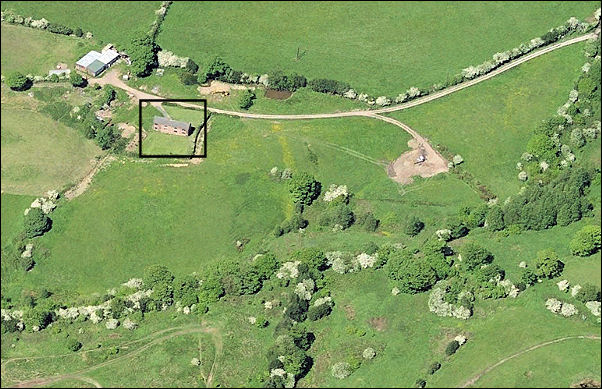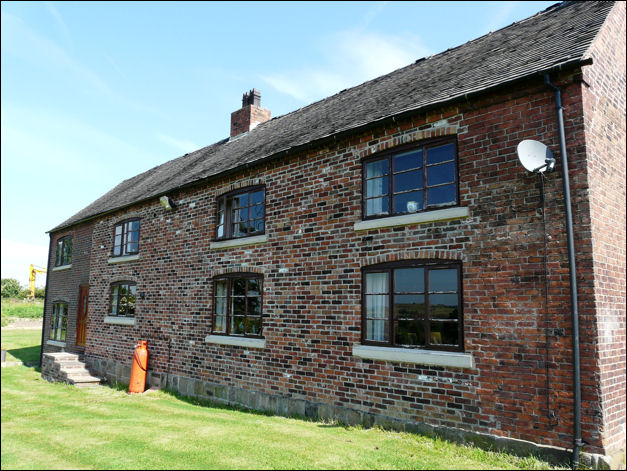|
Ford Hayes
Farm and the Primitive Methodists
Ford Hayes is an older
part of the area - it appears on the 1775 map.
By
the time of the 1840 map a lane had been built from Ash Bank to
Ubberley and this still exists today as Ford Hayes Lane.
Ford Hayes farm is a
listed building and
a man named Hugh Bourne, the founder of the Primitive
Methodist movement was born in this house on April 3rd 1772 and
lived here until 1788.
Even in 2008 the remoteness of this farmhouse is still apparent.

The birthplace
of Hugh Bourne - Ford Hayes Farmhouse
MS
Virtual Earth 2008
Around the same
time as the rise of the Methodist New Connexion, another wave of
revival swept into the new towns. Its leading figures were Hugh
Bourne and William Clowes. Hugh Bourne, was born at Ford Hayes Farm,
Bucknall, on April 3, 1772. He was a shy man who, until his
conversion in 1799, lived with an intense fear of falling into hell.
By the year 1800, he had moved to live in Harriseahead, a village to
the north of the present city. Towering above Bourne's new home was
Mow Cop, a "bald hill" rising to 1,091 feet above sea level, with
commanding views over the Cheshire plain.
Bourne was shocked
at the moral state of his new neighbourhood, saying, "There was not
in England a neighbourhood that was more ungodly and profane. A
stranger could hardly go over Harriseahead without insult and
sometimes not without injury." Against this background, Bourne met
for prayer and Bible study with other Methodists, and flames of
revival broke out in 1801, spreading quickly through the northern
towns of the Potteries and beyond.
William Clowes was
born in Burslem on March 12, 1780, a relative of Josiah Wedgwood on
his mother's side. William became a highly skilful master potter, as
well as a notorious drinker, gambler, womaniser and fighter, but was
remarkably converted at an evangelistic meeting in Congleton in
1804, following what Hugh Bourne described as yet another
"extraordinary outpouring of the Spirit." Clowes was to become a
powerful evangelist and a leader in the revival."
"Treasures in Jars of Clay" © 1994 Robert Mountford.

The Ford Hayes
Farmhouse in July 2008
photo:
© Fred Hughes

|
![]()
![]()
![]()